 On Easter Sunday morning, I was reading our local Catholic Newspaper, the Herald, published by the Archbishop of Kuala Lumpur, our Metropolitan. I came across this in the Letters to the Editor section.
On Easter Sunday morning, I was reading our local Catholic Newspaper, the Herald, published by the Archbishop of Kuala Lumpur, our Metropolitan. I came across this in the Letters to the Editor section.Only one God worshipped by all religions
Dear Editor,
 I have wanted to pose this question for a long time to all those who say that the Catholic Church believes that there is only One God and we should not worship or even mention the 'Gods' of other religions in the church (and specifically to Mr Gan pertaining to his letter to HERALD on March 4).
I have wanted to pose this question for a long time to all those who say that the Catholic Church believes that there is only One God and we should not worship or even mention the 'Gods' of other religions in the church (and specifically to Mr Gan pertaining to his letter to HERALD on March 4).
God is One. This is a statement of fact. Therefore, what 'other Gods' are we talking about? To believe in the existence of more than one God is to contradict the belief in One God. The Hindus, Muslims, Buddhists, Sikhs, etc, perform the act of worship within their respective systems, and the God they purport to worship is ultimately the one God, because there is only One God, period ('One God and Father of all, who is above all, and through all, and in you all.' —Eph 4:6).
 Here's an analogy — There is only One Sun in our solar system. Indians call it Surya, Malays call it Matahari, and Chinese call it tài yáng. Does this mean that the Indians, Malays and Chinese are referring to 'other suns'?
Here's an analogy — There is only One Sun in our solar system. Indians call it Surya, Malays call it Matahari, and Chinese call it tài yáng. Does this mean that the Indians, Malays and Chinese are referring to 'other suns'?
The 1st Commandment warns us against the worship of 'other Gods.' We have made it too easy for ourselves by thinking that it refers to 'Gods' of other religions.But since there is only One God, the 'other Gods' obviously refers not to a divine entity, but something else. But what?
 Just take a look at yourselves calmly for once, and examine yourselves as to whether perchance you truly follow the First Commandment.
Just take a look at yourselves calmly for once, and examine yourselves as to whether perchance you truly follow the First Commandment.
One has a child who really means more to him than anything, for whom he could make any sacrifice, forgetting all else. Another sets earthly pleasure far above everything, and with the best volition would in the end be absolutely incapable of renouncing this pleasure for anything, if he were faced with such a challenge as afforded him a voluntary decision. A third again loves money, a fourth power, a fifth a woman, another earthly distinction, and again in all these things they all ultimately love only ... themselves!
This is idolatry in the truest sense, the worship of 'other Gods' which the First Commandment warns us of.
In the final analysis, the entire world is being driven insane by this single phrase: "My religion alone is true." But the Truth if only accepted, may make the world a better place.
"'Members of all faiths are equal before God. God rules over each faith just like a sovereign over his kingdom. In the world, all religions are not the same because all people have not complied with the commandments of God. They reject and disparage them." (Our Lady of Medjugorie, October 1, 1981. Words from Heaven, P. 105.)
There is no religion higher than Truth.

Reeeally? You don't say. As those of you who know me can guess, I was itching to reply, and to do it soon because the publication deadline is on Tuesday, as I found out when I tried to get my parish's Holy Week photos published.
So, below, is a very very brief response, only covering the major points of his letter. I learned my lesson when a long but thoroughly documented and annotated letter I sent got chopped up so badly only the salutation in the front remained. The letter became incomprehensible and I looked like an utter fool. Luckily, I emailed the full copy to some priests as well as the Editor so at least they knew what I actually wrote.
Some graphics are included for your viewing pleasure. Hopefully, they make my point clear.
Happy reading =)
Dear Editor.
I would like to briefly respond to Ralph Aramis' letter 'Only one God worshipped by all religions ' (published Sunday, April 15, 2007). In this letter, he puts forth the thesis that "The Hindus, Muslims, Buddhists, Sikhs, etc, perform the act of worship within their respective systems, and the God they purport to worship is ultimately the one God, because there is only One God, period". In other words, that all religions are equal because they are all paths to the One God who is called by different names as Ralph gives in his solar analogy.
Firstly, this claim is factually untrue and no one makes this claim unless they are uninformed about the various religions and what they actually teach, insist on misrepresenting those teachings or are just indifferent and think that the distinctive teachings of the religions are unimportant. It is very patronizing to the others faiths to tell them that whatever they claim, their 'god' is the same as the God of the Christians.
Who is being worshipped is important. Calling something God does not make it so. The Golden Calf whom the Israelites called their God and worshipped at the base of God's mountain was not God, period, as the Israelites found out to their dismay. And neither is Baal, Chemosh, Astarte, Asherah, Molech, Dagon, the gods of the Egyptians, the gods of the Canaanites etc. God minds who is worshipped, if the Christian Scriptures are to be believed.
Christianity makes several important objective claims that directly contradict the objective claims of the other religions and vice versa.
For example, Hinduism is pantheistic. It teaches that everything is God and God is in everything. The the world/creation is is either identical with God, is in some way a self-expression of his nature and that all other forms of reality are either modes (or appearances) of it or identical with it. Christianity is theistic, believes in a personal God that transcends the world and is apart from it, creating it out of nothing and is very careful to emphasize the 'apartness' of God from His Creation.
Buddhism does not speak of God at all and denies the existence of the immortal soul. Instead of a personal free-willed selfless love of agape, Buddhism teaches a universal, impersonal feeling of compassion (karuna). They might result in the same actions, ie helping those in need, etc. But their motivations are inherently different. Christians do it out of personal selfless love, agape, for the person, the object of that love, but Buddhists do it out of compassion (karuna) to liberate the giver from the burden of self, because it was the enlightened thing to do, seeing through the illusion of individuality because all are One and helping another is helping oneself. Buddhists and Christians are poles apart in that whereas Jesus wants, desires that we love more, love God with all our hearts, soul and strength but Buddha wants, desires us to love less, desires us to cease loving and ultimately, just cease, achieving the annihilation of the self that is Nirvana.
In the Dogmatic Constitution on the Church, Lumen Gentium, Muslims are called those who "professing to hold the faith of Abraham, along with us adore the one and merciful God, who on the last day will judge mankind." The key word here is 'professing to hold' for the Church takes them at their word that they hold the faith of Abraham and acknowledges that with Christians, they adore the one merciful God. The document speaks of Muslims but does not mention Muhammad or Islam. Islam sees itself as a correction and explicit denial of the Christian claims of the Divinity of Jesus. They deny the fact that Jesus was crucified, died and rose again. Muslims reject that God is the Father of the Lord Jesus Christ. They know of no God except the he who IS NOT the Father of the crucified and risen Jesus. Christians on the other hand, know of no other God except He who IS the Father of the crucified and risen Jesus. Can we then truly say that the Allah of Islam is the same God and Father of Jesus Christ whom Christians worship?
We need to distinguish between the God of Muslims or the God of the Hindus or the God of whoever and the god of Islam, Hinduism etc. God is the God of all people and all creation and all things. But the deities of the various religions are not that God.

These are all mutually contradicting claims and for one to be true, the other must be false unless the author resorts to a subjective view of truth, as in what ever is good for you is good for you and whatever is good for me is good for me. Basically, a live and let live attitude contrary to the missio ad gentes to baptize all nations in the name of the Father and of the Son and the Holy Spirit. If so, then the author denies the objective Truth claims of Jesus who claims to be THE Way, not one of many ways, and THE Truth, not one of many Truths.
The 2nd Vatican Council in the Declaration Nostra Aetate on the Relation of the Church to Non-Christian Religions #2 says this "The Catholic Church rejects nothing that is true and holy in these religions." Implicit in this statement is the rejection of the things that are untrue in those religions that need to be conformed to the final revelation that is in Christ who is the fullness of the revelation of God. Religions are judged on the proximity to the truth revealed in Christ starting from monotheists and ending with idolatry and Satanism.
Several different religions do share something in common, such as the Golden Rule, but this is ethics and ethics is not religion. Unless the author wishes to claim that those without religions are unethical? Religion is more than ethics.
The common assumption made by the author, that all roads go up towards the same God, assumes that it is man who searches for God, that the path is man made and God is at the end of the journey. But Christianity teaches that the path is downwards, not upwards, and it is God who descends in search of man who has strayed, it is God who stretches down His hand to rescue fallen humanity. Christianity is not thought up by man, however enlightened, but revealed by God in His Only Son Jesus the Christ who is Truth Himself. If indeed man made the road upwards and invented religion, then the exclusive claim of Christianity would indeed be arrogant. But it is God who made the one road down and it is in humility that Christians accept this road that God had made and travel on it, rather than proudly making their own roads and following them and calling them God's road. We cannot make religion into our own image, we cannot make it up so we can play nice.
The whole question boils down to truth, as the author had wisely noted.
Christians do not believe that there is only One Way because of pride, but because the Truth Himself says this and we believe in Him who is the Truth and the Life. It isn't our way, it is His Way, the only Way, which He revealed to us. We accept His claims of Who He is and all that He teaches, which is why we are Christian. It is not out of arrogance that Jesus teaches this, the same Jesus who washed the feet of the disciples and asked them to do the same to each other. Jesus teaches this because it is true and He is Truth. For Christians, the Truth is a person and that person is none other than Jesus Christ, the same yesterday, today and forever.
Thank you,
Andrew Khoo
Penang
If any confusion remains, I direct you to the Athanasian Creed.
The Athanasian Creed
| The Latin Original. | English |
| 1. Quicunque vult salvus esse: ante omnia opus est, ut teneat catholicam fidem. | 1. Whosoever will be saved: before all things it is necessary that he hold the Catholic Faith: |
| 2. Quam nisi quisque integram inviolatamque servaverit: absque dubio in æternum peribit. | 2. Which Faith except every one do keep whole and undefiled: without doubt he shall perish everlastingly. |
| 3. Fides autem catholica hæc est: ut unum Deum in Trinitate, et Trinitatem in Unitate veneremur; | 3. And the Catholic Faith is this: That we worship one God in Trinity, and Trinity in Unity; |
| 4. Neque confundentes personas: neque substantiam separantes. | 4. Neither confounding the Persons: nor dividing the Substance [Essence]. |
| 5. Alia est enim persona Patris: alia Filii: alia Spiritus Sancti. | 5. For there is one Person of the Father: another of the Son: and another of the Holy Ghost. |
| 6. Sed Patris et Filii et Spiritus Sancti una est divinitas: æqualis gloria, coæterna majestas. | 6. But the Godhead of the Father, of the Son, and of the Holy Ghost, is all one: the Glory equal, the Majesty coeternal. |
| 7. Qualis Pater: talis Filius: talis [et] Spiritus Sanctus. | 7. Such as the Father is: such is the Son: and such is the Holy Ghost. |
| 8. Increatus Pater: increatus Filius: increatus [et] Spiritus Sanctus. | 8. The Father uncreate [uncreated]: the Son uncreate [uncreated]: and the Holy Ghost uncreate [uncreated]. |
| 9. Immensus Pater: immensus filius: immensus [et] Spiritus Sanctus. | 9. The Father incomprehensible [unlimited]: the Son incomprehensible [unlimited]: and the Holy Ghost incomprehensible [unlimited, or infinite]. |
| 10. Æternus Pater: æternus Filius: æternus [et] Spiritus Sanctus. | 10. The Father eternal: the Son eternal: and the Holy Ghost eternal. |
| 11. Et tamen non tres æterni: sed unus æternus. | 11. And yet they are not three eternals: but one eternal. |
| 12. Sicut non tres increati: nec tres immensi: sed unus increatus: et unus immensus. | 12. As also there are not three uncreated: nor three incomprehensibles [infinites], but one uncreated: and one incomprehensible [infinite]. |
| 13. Similiter omnipotens Pater: omnipotens Filius: omnipotens [et] Spiritus Sanctus. | 13. So likewise the Father is Almighty: the Son Almighty: and the Holy Ghost Almighty. |
| 14. Et tamen non tres omnipotentes: sed unus omnipotens. | 14. And yet they are not three Almighties: but one Almighty. |
| 15. Ita deus Pater: deus Filius: deus [et] Spiritus Sanctus. | 15. So the Father is God: the Son is God: and the Holy Ghost is God. |
| 16. Et tamen non tres dii: sed unus est Deus. | 16. And yet they are not three Gods: but one God. |
| 17. Ita dominus Pater: dominus Filius: dominus [et] Spiritus Sanctus. | 17. So likewise the Father is Lord: the Son Lord: and the Holy Ghost Lord. |
| 18. Et tamen non tres domini: sed unus [est] Dominus. | 18. And yet not three Lords: but one Lord. |
| 19. Quia sicut singulatim unamquamque personam Deum ac Dominum confiteri, Christiana veritate compellimur: | 19. For like as we are compelled by the Christian verity: to acknowledge every Person by himself to be God and Lord: |
| 20. Ita tres deos, aut [tres] dominos dicere, catholica religione prohibemur. | 20. So are we forbidden by the Catholic Religion: to say, There be [are] three Gods, or three Lords. |
| 21. Pater a nullo est factus: nec creatus, nec genitus. | 21. The Father is made of none: neither created, nor begotten. |
| 22. Filius a Patre solo est: non factus, nec creatus: sed genitus. | 22. The Son is of the Father alone: not made, nor created: but begotten. |
| 23. Spiritus Sanctus a Patre et filio: non factus, nec creatus, nec genitus: sed procedens. | 23. The Holy Ghost is of the Father and of the Son: neither made, nor created, nor begotten: but proceeding. |
| 24. Unus ergo Pater, non tres patres: unus Filius, non tres filii: unus Spiritus Sanctus, non tres spiritus sancti. | 24. So there is one Father, not three Fathers: one Son, not three Sons: one Holy Ghost, not three Holy Ghosts. |
| 25. Et in hac Trinitate nihil prius, aut posterius: nihil majus, aut minus. | 25. And in this Trinity none is afore, or after another: none is greater, or less than another [there is nothing before, or after: nothing greater or less]. |
| 26. Sed totæ tres personæ coæternæ sibi sunt, et coæquales. | 26. But the whole three Persons are coeternal, and coequal. |
| 27. Ita, ut per omnia, sicut jam supra dictum est: et Unitas in Trinitate, et Trinitas in Unitate, venerenda sit. | 27. So that in all things, as aforesaid: the Unity in Trinity, and the Trinity in Unity, is to be worshiped. |
| 28. Qui vult ergo salvus esse, ita de Trinitate sentiat. | 28. He therefore that will be saved, must [let him] thus think of the Trinity. |
| ———— | ———— |
| 29. Sed necessarium est ad æternam salutem: ut incarnationem quoque Domini nostri Jesu Christi fideliter credat. | 29. Furthermore it is necessary to everlasting salvation: that he also believe rightly [faithfully] the Incarnation of our Lord Jesus Christ. |
| 30. Est ergo fides recta, ut credamus et confiteamur: quod Dominus noster Jesus Christus Dei Filius, Deus [pariter] et homo est; | 30. For the right Faith is, that we believe and confess: that our Lord Jesus Christ, the Son of God, is God and Man; |
| 31. Deus [est] ex substantia Patris, ante secula genitus: et homo ex substantia matris, in seculo natus. | 31. God, of the Substance [Essence] of the Father; begotten before the worlds: and Man, of the Substance [Essence] of his Mother, born in the world. |
| 32. Perfectus Deus: perfectus homo, ex anima rationali et humana carne subsistens. | 32. Perfect God: and perfect Man, of a reasonable soul and human flesh subsisting. |
| 33. Aequalis Patri secundum divinitatem: minor Patre secundum humanitatem. | 33. Equal to the Father, as touching his Godhead: and inferior to the Father as touching his Manhood. |
| 34. Qui licet Deus sit et homo; non duo tamen, sed unus est Christus. | 34. Who although he be [is] God and Man; yet he is not two, but one Christ. |
| 35. Unus autem, non conversione divinitatis in carnem: sed assumptione humanitatis in Deum. | 35. One; not by conversion of the Godhead into flesh: but by taking [assumption] of the Manhood into God. |
| 36. Unus omnino; non confusione substantiæ: sed unitate personæ. | 36. One altogether; not by confusion of Substance [Essence]: but by unity of Person. |
| 37. Nam sicut anima rationalis et caro unus est homo: ita Deus et homo unus est Christus. | 37. For as the reasonable soul and flesh is one man: so God and Man is one Christ; |
| 38. Qui passus est pro nostra salute: descendit ad inferos: tertia die resurrexit a mortuis. | 38. Who suffered for our salvation: descended into hell [Hades, spirit-world]: rose again the third day from the dead. |
| 39. Ascendit ad [in] cœlos: sedet ad dexteram [Dei] Patris [omnipotentis]. | 39. He ascended into heaven, he sitteth on the right hand of the Father God [God the Father] Almighty. |
| 40. Inde venturus [est] judicare vivos et mortuos. | 40. From whence [thence] he shall come to judge the quick and the dead. |
| 41. Ad cujus adventum omnes homines resurgere habent cum corporibus suis; | 41. At whose coming all men shall rise again with their bodies; |
| 42. Et reddituri sunt de factis propriis rationem. | 42. And shall give account for their own works. |
| 43. Et qui bona egerunt, ibunt in vitam æternam: qui vero mala, in ignem æternum. | 43. And they that have done good shall go into life everlasting: and they that have done evil, into everlasting fire. |
| 44. Hæc est fides catholicæ: quam nisi quisque fideliter firmiterque crediderit, salvus esse non poterit. | 44. This is the Catholic Faith: which except a man believe faithfully [truly and firmly], he can not be saved. |
![[Unam Sanctam]](https://blogger.googleusercontent.com/img/b/R29vZ2xl/AVvXsEiymQ2adTjpZ1ABhPBbBBquiPCxeQrc4Jy_97vOikT0wGQeJleriiXQy6ebnb0jrYe-TfvcK77txStB4aIwVAdD41ZdMkVfNtFGC0JX6LBV9B8mfeRZaIAM7Sj-011ag3DiKQzv/s1600/headerdivinemercy.jpg)



















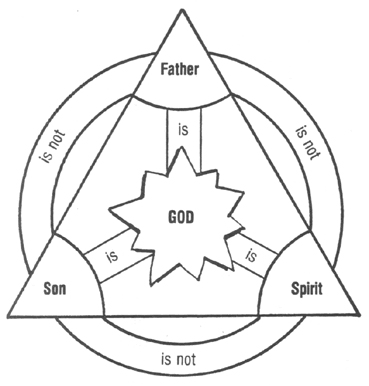











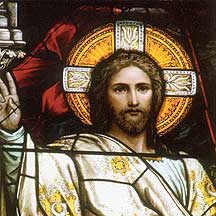







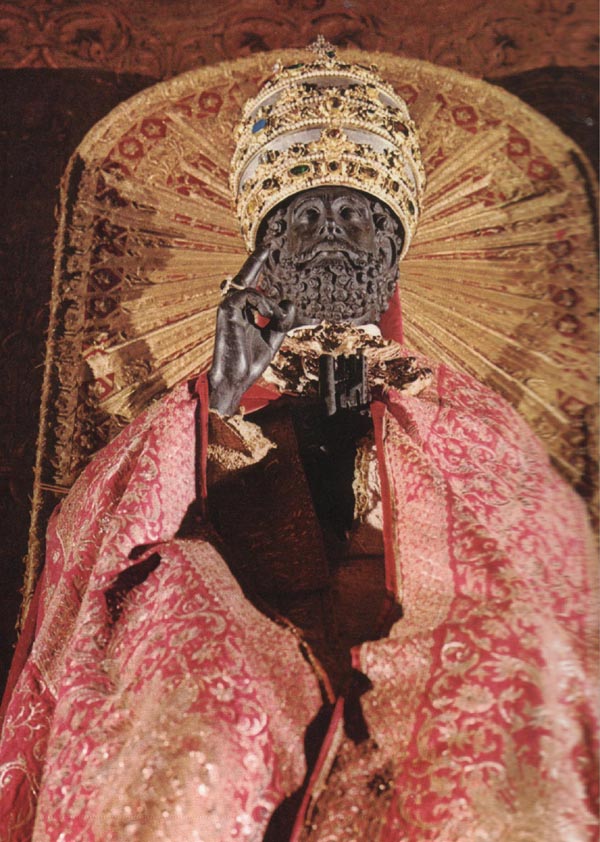
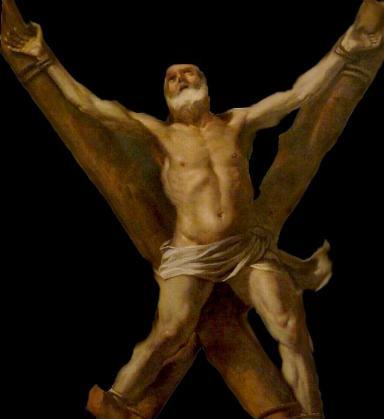




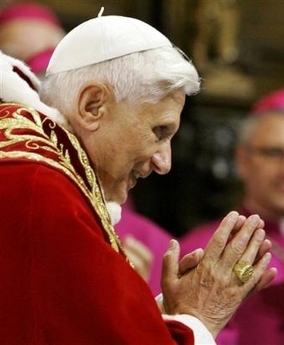






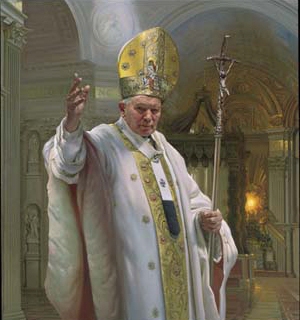
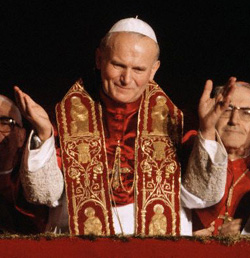
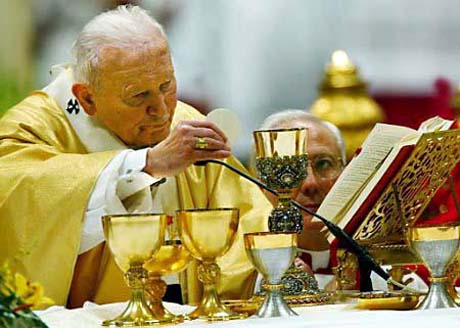







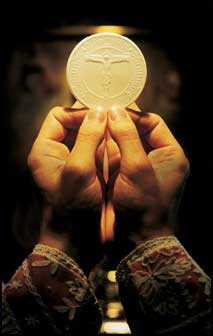
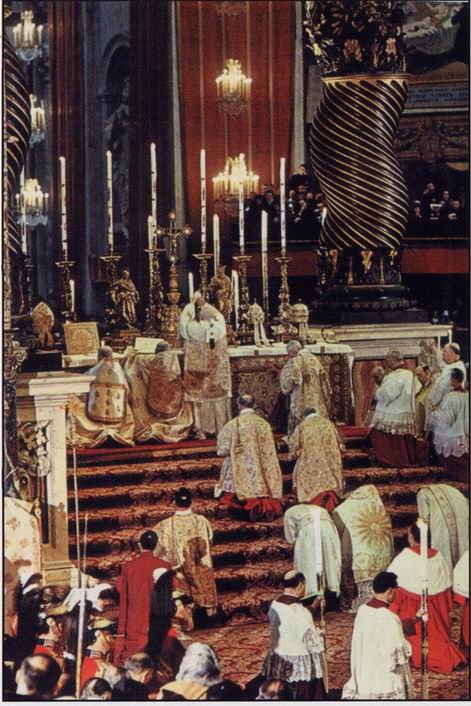

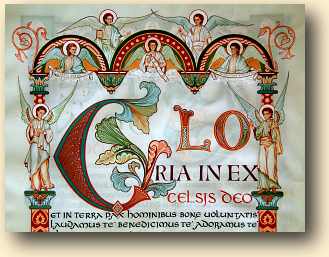

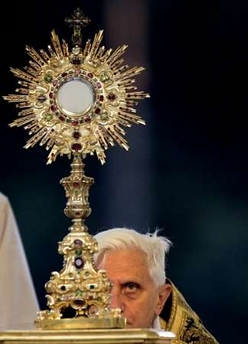


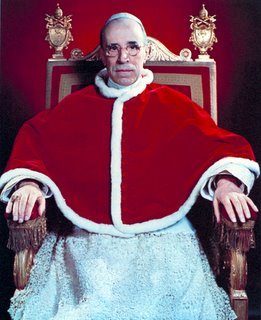




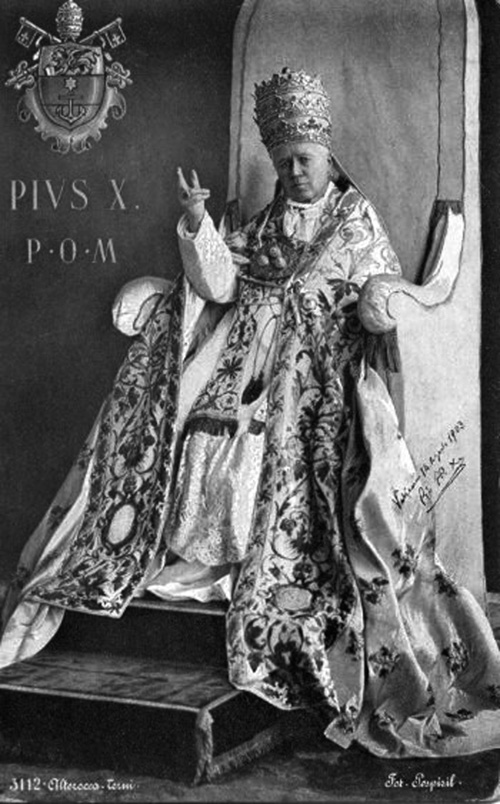



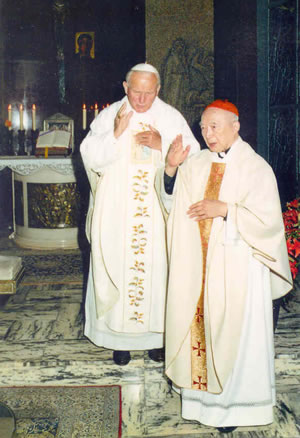





17 comments:
Wonderfully done, Andrew! If I may ask a further question, why is it that many Catholics seem to think that the moslems worship the same God as us? Could you perhaps shed some light on this?
Good one, though I still think the editor of HERALD will chop it. Funny that I was thinking about using the golden calf example too when I read that letter in the HERALD. But you've beaten me to it. Oh well.
Well done Andrew. But your reply would have be more effective if it was kept more precise (although I agree that your research is very meticulous). Once the Editor puts his scissors to it, which he surely will then much will be lost.
Hopefully the essence will be kept. Looking forward to seeing it in. BTW of late many of our local Catholics, claiming to be liberals (I wonder if they the meaning of term) are busy shooting of letters to the Herald without much thought to what they are writing.
I'm quite sure that the editor will shorten this even though it is already significantly shorter than your previous letter to him. Maybe you should have asked a priest to send it in for you??
Some Catholics are of that opinion because Allah is a generic name of God used by Arab speaking Catholics in their liturgy and scriptures. The Vatican and Pope John Paul II have also made conciliatory gestures to the Muslims implying that the Allah of Islam is the same as the Allah of the Catholics. This is not true.
Uncle Greg, Hymn Selector and Mark, I've wanted to write in a couple of times before when I saw heretical and sometimes outright blasphemous opinions being published. But have always managed to restrain myself =) I understand that I should have made it shorter. I actually wanted to make it longer for there are some things which I did not touch on. I just hope the Fr. Lawrence Andrew does chop it up too bad and the main thrust or my argument is still intact.
And another thing. This Anil Netto chap talks too much politics, and anti-US politics to be exact and his liberation theology is obscuring the uniqueness of Christ and the Gospel. His anti-US sentiment is destructive rather than constructive. He offers no solutions, merely criticisms. Christ is not just another glorified social worker whom we must emulate. Perhaps, like John Sobrino, the Vatican can issue a Notification on the danger of his writings. I must write to the CDF and Cardinal Levada.
Thanks Andrew. One further question, if I may test your patience a little further, what would you say to those Christians who approve of Islam as a religion because it has similarities to the Faith, such as fasting, prayer, etc?
Well Andrew, it's not surprising given that a certain local priest of a very well-known order prefers to focus his homilies on social justice issues. Those of you in KL will know who I'm referring to, but I don't think he's the only one with such tendencies. I wouldn't be surprised if Anil Netto comes from that parish too.
wonderful post Andrew!
You have a clearer mind than most of -even Priests- have!
I don't know exactly about other faiths, but there are a lots of reasons why the god of muhammad could not be the God of Israel (actually it is just the arian heresy, rivisited)
Go on like that! echnaton
Mr. Smith, Christians are called to know their faith better. All religious people pray. Satanists pray as well. The Catholic Church groups religions in how close they come to Catholic teaching. Then the jump from where they are to the fullness of truth will be less.
Hymn Selector, I don't suppose that particular priest comes from Orange County? Social justice is important, I admit that. The Prophets Hosea and Amos are very strong on this and so is the Catholic Church. But this must not totally cloud over the Christian witness nor reduce Christ to a social liberator. But what I see coming from Netto's pen is nothing but pure partisan politics under the guise of social justice.
echnaton, thank you. You might be interested to know that St. John Damascene who grew up and lived in the court of the Sultan of Damascus and who wrote the first Christian response to Mohammadenism thought of it as a Christian and Christological heresy.
An excellent article, Andrew.
Fantastic.
Thank you, Janie. I'm glad you liked it.
hey..
nice article..
for what reason you said that Allah in Islam is not the real god..
and why did you say that Muhammad is not a prophet?
thanks yeah...
Hi "a pagan"
For the reason that Islam sees itself as a correction and explicit denial of the Christian claims of the Divinity of Jesus. They deny the fact that Jesus was crucified, died and rose again. Muslims reject that God is the Father of the Lord Jesus Christ. They know of no God except the he who IS NOT the Father of the crucified and risen Jesus. Christians on the other hand, know of no other God except He who IS the Father of the crucified and risen Jesus. Can we then truly say that the Allah of Islam is the same God and Father of Jesus Christ whom Christians worship? Asa Christian therefore, since I believe in the Christian God, I cannot believe that the Allah or god of Islam is the One True God as the God of Christianity is not the god of Islam as it is taught by Mohammed. Therefore, he cannot be a true prophet according to Christian teaching because he does not preach the True God.
If I believed that the god of Islam is the true God and Mohammed is a true prophet, I'd be a Muslim.
It's as simple as that.
Very interesting. May I ask, when you said that Jesus is the begotten Son of God, what do you mean by "begotten"?
I took the liberty of looking up the word "begotten" in Dictionary.com and there are two possible definitions:
1. To father; sire.
2. To cause to exist or occur; produce.
Well, since Jesus wasn't made/created so I'm guessing that the second definition is out of context right?
So, is it the first definition that the Christians are using? If it is so, how can a God sire an offspring?
First one must understand that Children of Israel never view Holy Spirit as God. Except for some Hellenistic Jew from Tarsus and Roman Fathers.
One shall also bear in mind; Holy Spirit is referred with title God's Spirit, and never be referred with the term God. But then again, we cant blame the Roman ChriStians as their language were not aramaic nor hebrew. Thus confusion occurs as they were not guided by any Jewish followers of Jesus when reading Israelite scriptures.
If we read the verse in Gen1:1-2.
God created the heavens and earth. But Holy Spirit only hovers on water. No where does it mention Spirit being involved in creating Heaven and Earth. But rather the verse imply that after Heaven and Earth were created. Only then, Holy Spirit is able to descend down to earth or do some jobs in heaven as commanded by Almighty God.
The verse also tells that Holy Spirit is limited in power as the Spirit can only exist in realm created by God and not being in the same realm with God. Thus only able to stay hover over the waters created by God.
Hope it clears the misunderstanding that Holy Spirit is God. Again it is important to note that no past prophets from the times of 7 Laws (Noah) to 10 Laws all (Israelite prophets) ever view or taught Holy Spirit as God.
Post a Comment